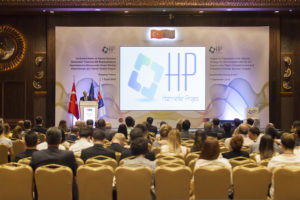
Technical Assistance for Implementation of Civil Society Dialogue and Civil Society Support Programmes (TR2015/DG/01/A5-01/001)
The overall aim of the project is to increase bilateral exchanges and cooperation between CSOs in Turkey and the EU at local, regional and national levels, to promote awareness raising initiatives on importance and benefits of membership of Turkey to the EU within Turkey and EU and on

Technical Assistance for Strengthening Institutional Capacity of the Judiciary and Execution System for the Fight against Addiction
The contract will contribute to the improvement of institutional capacity of judiciary in terms of fight against drug addiction. In this context the contract will cover activities such as trainings, workshops, needs assessment, drug addiction awareness raising group programmes, family counselling programmes, establishment of a monitoring and integration

Technical Assistance to Support the Implementation of the Rural Development Sector Development Programme (Phase 1 + 2)
After the positive vote of the Turkish Cypriot community in the 2004 referendum to reunite the island, the European Council decided to end the isolation of the Turkish Cypriot Community and facilitate its integration with the EU. Therefore, the purpose of the project was to improve socio-economic conditions

Technical Assistance for the Capacity Building of General Directorate of Highways for the Road Infrastructure Safety Management in Turkey
The project aims to enhance the administrative capacity of the General Directorate of Highways (KGM) to implement road infrastructure safety management and harmonise Turkish legislation with directive 2008/96/EC.

Support to Preparation of the National Strategy for Harmonization with the EU Acquis in the “Right of Establishment and Freedom to Provide Services” Chapter – Relaunch
The negotiations have been continuing between Turkey and the European Union on the subject of “Right of Establishment (ROE) and Freedom to Provide Services (FPS).” Thus, the project aimed to generate a comprehensive action plan that identifies all necessary legislative and administrative measures in order to comply with

Enhancement of Institutional and Administrative Capacity of Directorate of Transport, Maritime Affairs and Communications Research Centre
The project aims to enhance the institutional and administrative capacity of the Directorate of Transport, Maritime Affairs and Communications Research Centre (DoTMC Research Centre) by promoting research development and innovation in the transport sector. This project ensures the continuous supply of quality project proposals for the regular, timely

